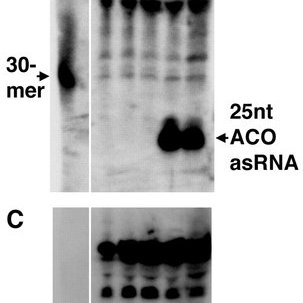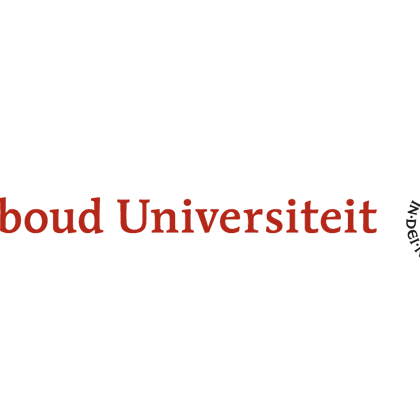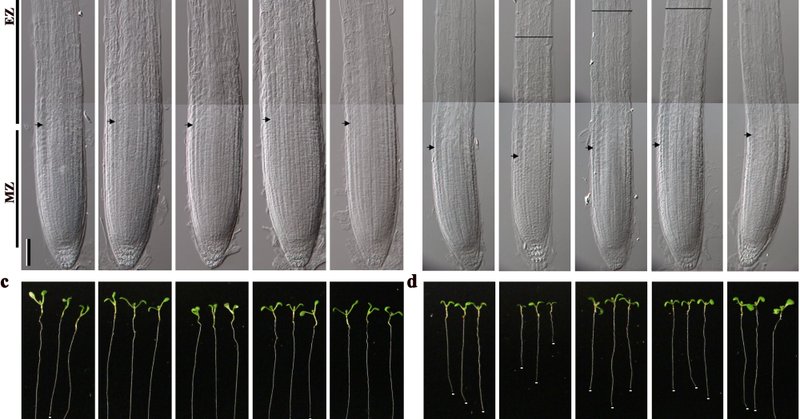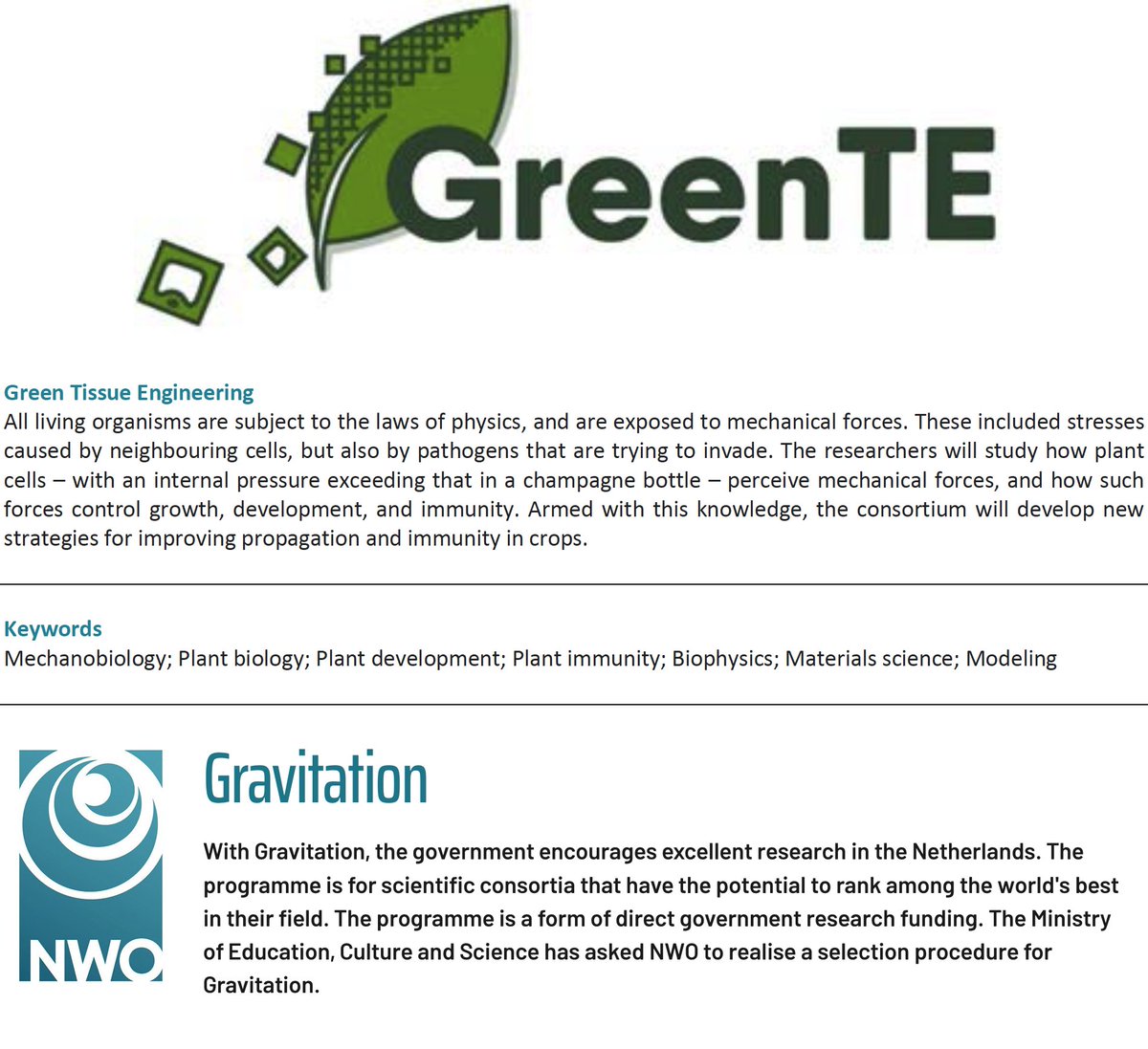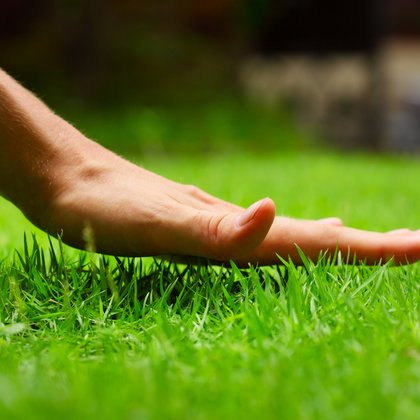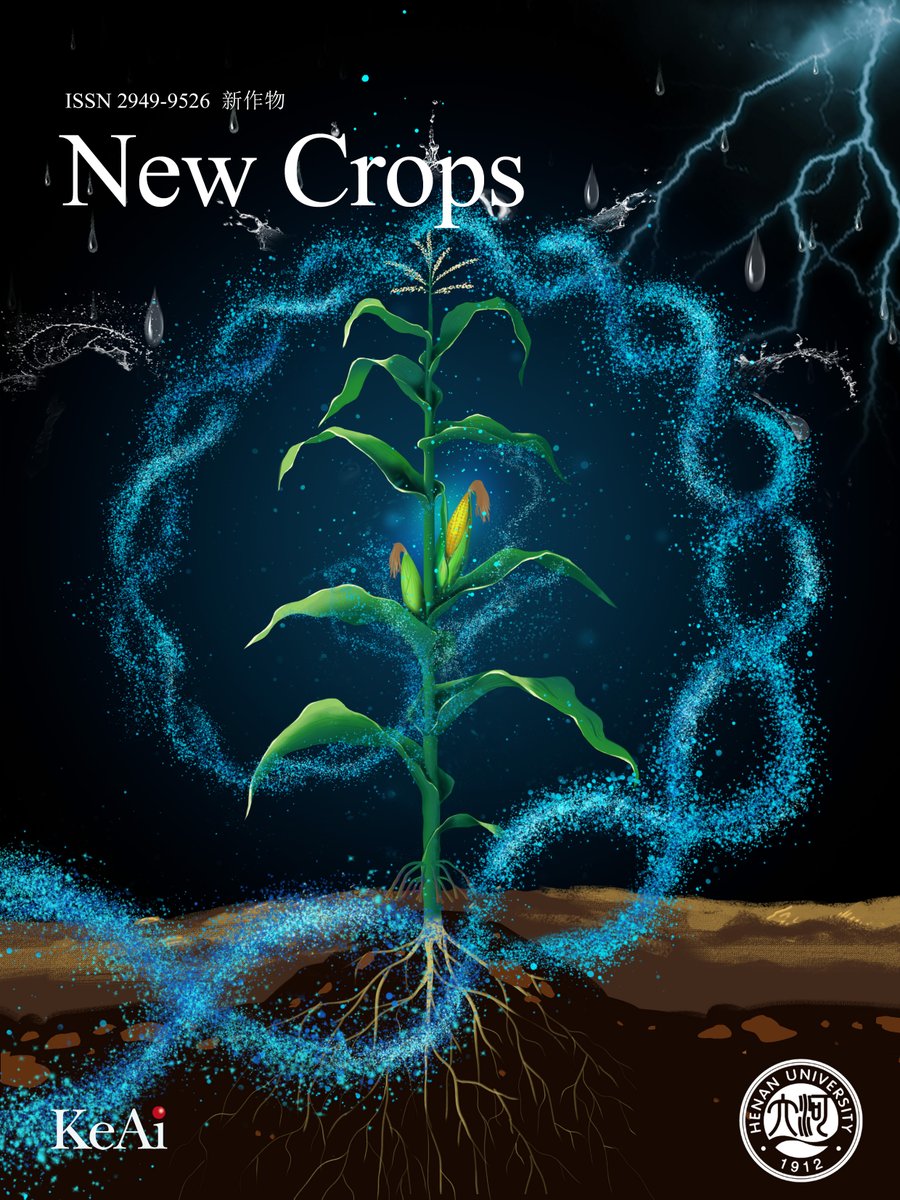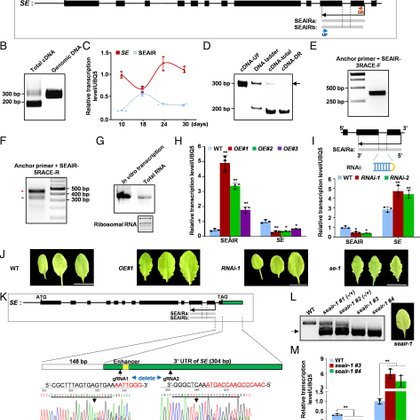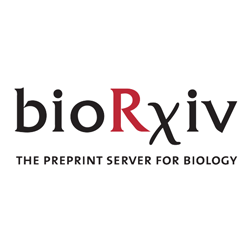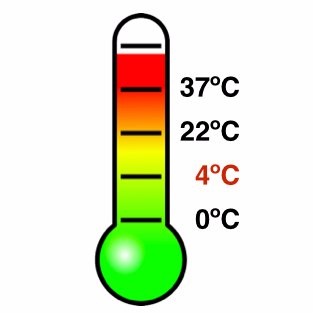
Jian XU
@tuliproot
Followers
505
Following
5K
Media
21
Statuses
319
Professor of Plant Systems Physiology at Radboud University | Single cell | Multicellularity | Tissue integrity | Root CAPability | Temperature
The Netherlands
Joined August 2011
RT @kaisakajala: Super excited to share the news that our BarrierFates consortium got 3M€ funding from NWO XL to study maize root barrier c….
nwo.nl
21 research consortia have the chance to reach a breakthrough thanks to funding from the Open Competition Domain Science - XL. From fundamental research on the effects of certain materials on the...
0
5
0
RT @charliesousbois: A Species of Small Antisense RNA in Posttranscriptional Gene Silencing in Plants.
science.org
Posttranscriptional gene silencing (PTGS) is a nucleotide sequence–specific defense mechanism that can target both cellular and viral mRNAs. Here, three types of transgene-induced PTGS and one...
0
27
0
RT @charliesousbois: We @RIBESresearch @Radboud_Uni are seeking to strengthen our team in Crop Biotechnology with two new assistant profess….
ru.nl
Thank you for your interest in working at Radboud University. We are no longer taking applications for this job.
0
17
0
RT @plantae_org: Plant Science Research Weekly -- Translocation of a chloride channel from the Golgi to the plasma membrane helps plants ad….
0
5
0
RT @charliesousbois: A hallmark of sex is each parent transmits half of their genome through a recombined egg or sperm. What if this was no….
0
77
0
Great #Teamwork! We have uncovered a mechanism of plant adaptation to salt stress involving the NaCl-induced translocation of AtCLCf to the PM, thus facilitating Cl− removal at the roots, and increasing the plant’s salinity tolerance.
nature.com
Nature Communications - In Arabidopsis roots, NaCl induces the translocation of AtCLCf from the Golgi to the plasma membrane, mediated by the small GTPase AtRABA1b, where AtCLCf functions as a...
4
7
29
RT @charliesousbois: Together with @MaastrichtU we @Radboud_Uni are starting a new research-based Graduate programme in Crop Biotechnology….
0
13
0
RT @maritzavandop: It was great to attend the EPS annual meeting again. Lots of interesting science and lovely people. And I was surprised….
0
2
0
Thrilled to be in #GreenTE consortium! 🌿 Funded by Dutch NWO Gravitation, with €22.8M for 10 yrs. 🌿 Offering 57 PhD and postdoc positions in bio, physics, chem, & modeling. 🌿 Stay alert for your chance to join us & become the world's best in green (plant) tissue engineering!
0
16
61
RT @GreenMechanobio: (1/5) We are thrilled to announce the funding of our 10-year Gravitation research program “Gr….
wur.nl
You probably don't realise it when you walk on grass: the blades of grass not only sense the pressure of your feet, but adjust their growth accordingly. But how do plants register forces without a...
0
11
0
📢 New Crops Journal, launched in June '23 by @HenanUniversity and @KeAiPublishing, is open for submissions with waived fees until end-2024. 📚 Dive into the Inaugural Editorial by Zhu-bing Hu & Chun-peng Song: 🌐
0
2
9
We invite you to become our colleague: Technician for Plant Molecular Biology at @RIBESresearch, please share and RT.
0
10
12
Finally, a welcome correction. A fascinating long non-coding RNA that I named SEAIRa.
pnas.org
SERRATE (SE) is a core protein for microRNA (miRNA) biogenesis as well as for mRNA alternative splicing. Investigating the regulatory mechanism of ...
0
3
17
RT @LabMutwil: Preprint! We churned through ~100,000 paper abstracts to identify relationships between genes, metabolites organs and the en….
biorxiv.org
Predicting gene function is indispensable to our understanding of biology. However, these predictions hinge on large collections of experimentally characterized genes, the compilation of which is not...
0
18
0
FYI: 3-IAA is the most common naturally occurring plant hormone of the auxin class. It has been the subject of extensive studies by plant scientists. Auxin derives its name from the Greek word αυξειν (auxein – "to grow/increase"), for both plants and animals including humans.
Nature research paper: Microbiota-derived 3-IAA influences chemotherapy efficacy in pancreatic cancer
0
0
6



